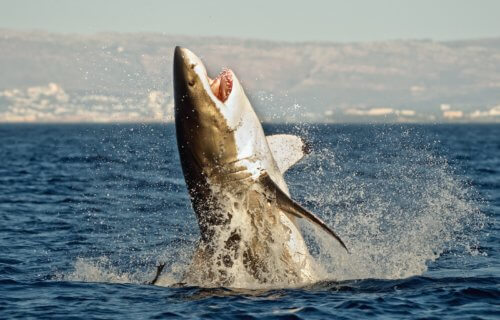MEADVILLE, Pa. — Entering its 33rd year, Discovery Channel’s “Shark Week” is the longest-running cable event in history! Perhaps even more importantly, Shark Week has become a true piece of Americana. Millions of people find themselves tuning in each July despite rarely showing any interest in sharks the other 51 weeks of the year. Shark Week has undeniably done a lot of good for marine biologists, ocean conservationists, and shark scientists. However, a new study reports the cable event of the summer is deeply flawed in a variety of ways.
Study authors argue that these problems undermine the greater purpose of Shark Week, potentially hindering the efforts of shark scientists and harming the sharks themselves. Researchers from Allegheny College looked at 200 Shark Week episodes to reach these conclusions.
“The public’s perception of sharks, shark science, and shark scientists is heavily influenced by Shark Week. Unfortunately, we found that Shark Week programming focuses on negative portrayals of sharks and does not often accurately portray shark research nor the diversity of expertise in the field. While critics have been saying this for some time, we now have the numbers to back it up,” says lead study author Dr. Lisa Whitenack, an associate professor of biology and geology, in a media release.
So, what exactly did the research uncover?
Although most Shark Week TV programs are supposedly based on legitimate science and research, study authors find many shows “relied on non-scientist hosts using atypical methods to answer a question long answered by the scientific community.”
Additionally, some methods employed by the shows border or cross the line into wildlife harassment and many repeat hosts have made “demonstrably false” statements in regards to the biology, behavior, or conservation of sharks.
Many Shark Week shows take place in Mexico, the Bahamas, or South Africa. Curiously, however, the team finds these episodes only feature local scientists a handful of times. The vast majority of shows bring in Caucasian “experts,” often times with no relevant expertise, from the other side of the world instead. Among hosts or experts brought back for more than 10 separate Shark Week episodes, 100 percent were white men. Meanwhile, many women and people of color working in the field of shark research have never appeared on any Shark Week programs.
Also, researchers contend that several Shark Week programs emphasize fearing sharks and seeing them as violent attackers over conservation efforts or understanding them as a species. These Shark Week episode titles include “Sharks: Are They Hunting Us?,” “Sharkpocalypse,” “Deadly Stripes,” and “Great White Serial Killer.”
Does Shark Week really help raise endangered species awareness?
Discovery Channel routinely claims that Shark Week is first and foremost about promoting conservation. However, researchers only noted six occasions in which a Shark Week program touched on how Shark Week’s massive audience could help sharks. On a related note, the three shark species most often featured during Shark Week do not rank among the most endangered. Even worse, the most critically endangered shark species haven’t been featured at all.
“We know that media representation and access to role models can play an important part in how welcoming STEM fields are to scientists from historically excluded groups. Moving away from featuring largely white male experts and towards including more diverse scientific voices and perspectives, particularly those of local experts where episodes are being filmed, would be a valuable step forward for Shark Week and shark science,” adds study co-author Dr. Catherine Macdonald, lecturer at the Rosenstiel School of Marine and Atmospheric Science, University of Miami, and director of Field School.
“Shark Week attracts an audience of millions of people. As a public science educator, I can’t even imagine how much good they could do if they tried, even a little, to share factually accurate and useful information about shark science and conservation. As it is, Shark Week is an enormous missed opportunity,” concludes senior study author Dr. David Shiffman of Arizona State University’s New College of Interdisciplinary Arts and Sciences.
Study authors presented their findings at the American Elasmobranch Society Conference.

I have complaints but silly or stupid racist nonsense. Some people are interesting some are not. Casagrande is interesting but not terribly scientific. Tristan whoever is just dull and boring and appears to want it handed to him. But my major complaint is the blatant nonsense that will get people killed. If you tell kids sharks don’t eat people and then that kid goes and gets his or her arm bit off or worse then you are somewhat responsible. Predators eat when they have the opportunity. Sometime@ all Predators take the easiest quickest dinner they come across. Sometimes a hungry shark eats or tries to eat a person. This does not mean sharks are evil. They are hungry. Don’t lie about it. All species of Predators have occasional family members who maybe from result of injury or illness, step away from “normal ” food source to the easiest thing they can get